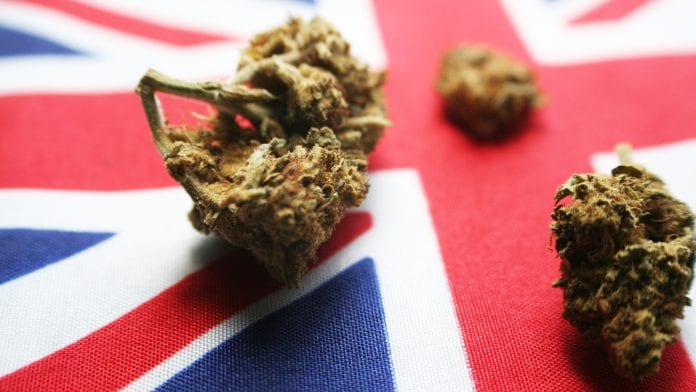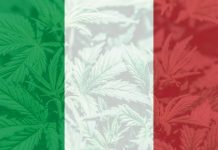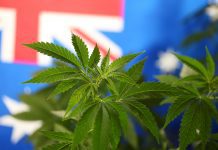
In this article, Eleri Williams, Associate at Hill Dickinson Life Sciences team, sets out an overview of the current legal and regulatory position on the import and export of medical cannabis to and from the UK.
While doctors are now allowed to prescribe medicinal cannabis in certain circumstances, many patients, particularly those who seek prescriptions through the NHS, still face an uphill struggle in obtaining this medicine, which can effectively treat or alleviate the symptoms of some medical conditions.
One of the many hurdles to overcome is the slow and bureaucratic process of importing medicinal cannabis, which runs paradoxically to the UK’s position as the world’s largest exporter. In recognition of this difficulty and the detrimental effect on patients, in March 2020 the UK government alleviated some of the import restrictions to allow patients easier access to medical cannabis once medically prescribed.
Legal overview
The Misuse of Drugs Act 1971 prohibits and criminalises various activities relating to controlled drugs in the UK, including the importation and exportation, production, supply and possession of cannabis and associated products. These activities can, however, be undertaken with an appropriate licence from the Home Office.
A definitive list of the different types of licence available is contained in the Misuse of Drugs (Licence Fees) Regulations 2010, which sets out the fees to be paid in respect of the different types of licence. Individual licences for the importation and exportation of cannabis can be obtained, though applicants may also be required to hold a domestic licence. Home Office guidance is available to applicants on the process for applying for import/export licences – National Drugs Control System – Guide for Users (October 2017).
In addition, cannabis-based medicinal products (CBMPs) for human patients can be lawfully supplied pursuant to a marketing authorisation granted by the MHRA (only Sativex and Epidyolex have marketing authorisations in the UK and can be prescribed in the usual way) or as an investigational medicinal product supplied for use in the course of a clinical trial.
In October 2018, due to the increasing demand for medicinal cannabis and effective publicity campaigns, UK law was changed to allow doctors on the General Medical Council’s specialist register to prescribe CBMPs as an unlicensed ‘special’ medicinal product (Specials) to patients where there is an unmet clinical need and no other treatment has been effective. Specials are therefore medicinal products that are manufactured in response to a prescription for supply to a named patient and can be considered as bespoke medical products tailored to the individual needs of a patient.
On 11 November 2019, NICE issued guidance on the prescription of CBMPs for people with intractable nausea and vomiting, chronic pain, spasticity, and severe treatment-resistant epilepsy.
Import
While the UK is the largest exporter of medical cannabis in the world, most Specials are currently imported. Despite the change in law in November 2018, the first shipment of Specials, which came from the Netherlands, was not sent to the UK until February 2019. The supply of Specials is tightly regulated in the UK and companies are required to apply for a Home Office licence to import, the process for which can take weeks. Furthermore, a new licence to import is required for each shipment that takes place and import licenses are normally only valid for three months. This means that a patient’s prescription for Specials may have expired by the time it has arrived in the UK since patients with prescriptions for unlicensed medicines must have their prescription reviewed every 30 days by a specialist doctor. In addition to the Home Office licence, the importer of Specials must hold either an MHRA Wholesale Dealer’s Licence if the product is being imported from an EEA member state, or a Manufacturer’s (Specials) Licence if the product is coming from a non-EEA country. The importer must notify the MHRA at least 28 days before the intended import with various information, including the product’s name, the manufacturer’s name, and the quantity to be imported.
For Specials, the MHRA also requires the following with each notification:
- a declaration of the content/ratio of THC/CBD and as it appears on the label, as appropriate
- a Certificate of Analysis to support the batch specification
- a valid Good Manufacturing Practice (GMP) certificate for the site of manufacture
- justification for the patient’s special clinical need by a doctor registered on the GMC Specialist Register, which may take the form of a prescription or a prescriber’s letter
Specials cannot be imported if the MHRA issues an objection to the import within 28 days of their acknowledgement of the notification of intent to import. Furthermore, the MHRA can grant permission to import up to 28 days from the date of acknowledgement, but this is usually only used in the case of immediate import of medicines for life-threatening or immediately injurious clinical emergencies.
There are various recordkeeping requirements and any records must be maintained for at least five years and be available for inspection by the MHRA on request. The importer should provide a copy of their Home Office licence to the manufacturer/exporter in the source country. Once imported, UK customs checks are carried out and the CBMP must be placed in a quarantine warehouse until routine checks have been undertaken.
Until recently, the process of importing Specials was often long, laborious and could ultimately be detrimental to a patient’s health.
In recognition of this and to help patients, on 2 March 2020 the Department of Health and Social Care and the Home Office made an announcement that import restrictions on Specials had been changed, allowing for companies to import CBMPs in advance of a prescription to ensure patient’s prescriptions are not delayed or interrupted.
The new measures were implemented by the MHRA and the Home Office on the same date. This change enables licensed wholesalers to import larger quantities of CBMPs and hold supplies for future use, meaning that patients prescribed Specials will receive their medicine within days, rather than months of receiving their prescription. Furthermore, since this allows for bulk importation, cost savings can, at least theoretically, be passed onto patients.
Export
GW Pharmaceuticals, based in the UK, is the largest exporter of CBMPs in the world. This may come as a surprise to many, given the UK’s complex regulatory system when it comes to the supply of medicinal cannabis and the fact that many consider that proper access to medicinal cannabis is still being denied to patients in the UK.
The process of applying for the relevant Home Office licence to export CBMPs is very similar to the process for an import licence. An individual licence is required for each shipment that takes place and when applying for an export licence, a copy of the import permit awarded by the importing country must be provided.
As with import, wholesale dealers exporting or distributing medical cannabis can only undertake this activity with the applicable licences in place.
The relevant EU Directive defines the wholesale distribution of medicinal products as: “All activities consisting of procuring, holding, supplying, or exporting medicinal products, apart from supplying medicinal products to the public. Such activities are carried out with manufacturers or their depositories, importers, other wholesale distributors or with pharmacists and persons authorised or entitled to supply medicinal products to the public in the Member State concerned.”
MHRA guidance confirms that the holder of a Wholesale Dealer’s Licence must only supply Specials to:
- The holder of a Wholesale Dealer’s Licence relating to those products
- The holder of an authorisation granted by the competent authority of another EEA State authorising the supply of those products by way of wholesale dealing
- Any person who may lawfully supply medicinal products in circumstances corresponding to retail sale
- Any person who may lawfully administer those products
Medical cannabis in the UK
Medical cannabis can now be prescribed to patients in the UK in limited circumstances, but until recently the importation of Specials has proved time-consuming and complex, frustrating the system and causing detriment to the patient with chronic illnesses. While regulatory hurdles still remain, the UK government has recognised the detriment that delay to the importation of a prescribed medicine may cause to patients. Time will tell whether the easing of import restrictions will have the desired effect, particularly as we emerge from a global pandemic, which has only caused more delay and uncertainty to the international movement of goods.
In the announcement in March 2020, it was confirmed that: “The government is working with industry to explore further ways to reduce costs and encourage more research into uninterrupted access to cannabis-based medicinal products where clinically appropriate. The government will also continue to engage with medical associations and patients to build evidence, using trials in the UK to accelerate our understanding of how medicinal cannabis can benefit patients. This is necessary for wider prescribing by NHS clinicians in future.”
Whilst progress is slow, it seems likely that CBMPs will only become more prevalent in the UK market and that import restrictions, in particular, may require a further overhaul in the future.
Eleri Williams
Guest author
Associate
Hill Dickinson Life Sciences
This article is for issue 4 of Medical Cannabis Network. Click here to get your free subscription today.







